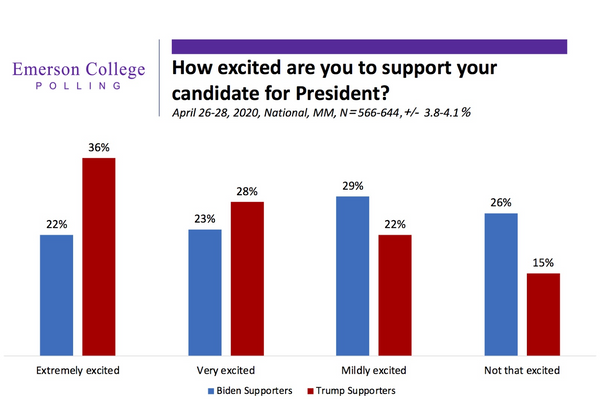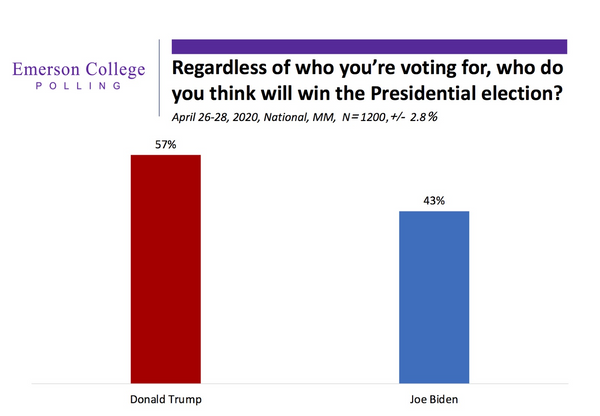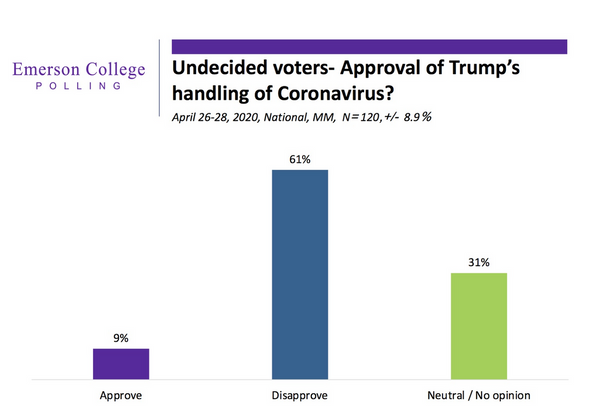A new Emerson College Polling national poll finds President Trump's approval rating at 41% approval, with 50% disapproval. This indicates a 5 point swing in both directions since March, when his approval was 46% approval, 45% disapproval. Approval of the Presidents’ handling of the coronavirus is at 39% approval, a 10 point drop from the 49% who approved of his handling of the situation in March. His disapproval rating of handling the Federal Government’s response to the outbreak of the Coronavirus increased 10 percentage points from 41% to 51%.
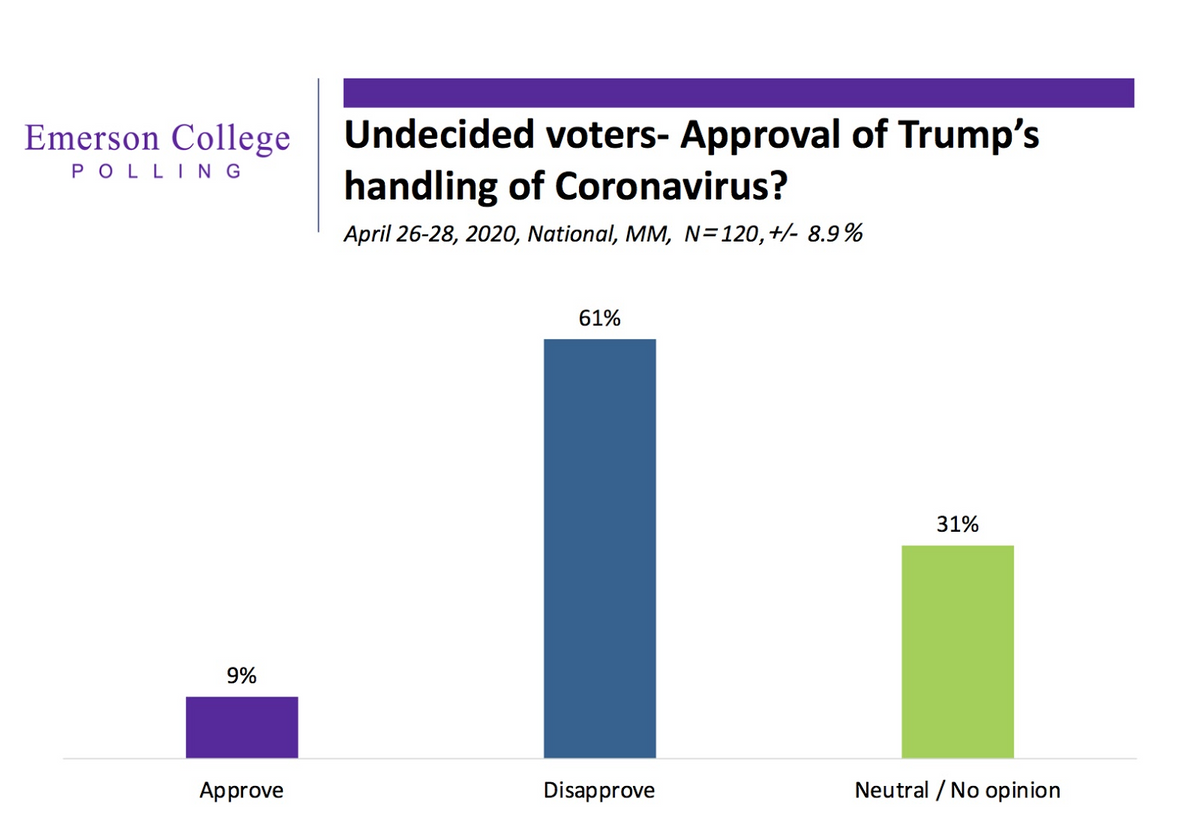
Despite Trump's drop in approval, former Vice President Joe Biden maintains only a 6 point lead in the Presidential ballot test, 48% to 42%. This is the same numerical difference as last month's poll, where Biden led Trump 53% to 47%. Ten-percent (10%) of voters said they were undecided, but when asked to choose a candidate they were leaning towards, undecided voters slightly broke in favor of Biden, 56% to 44%, giving Biden an additional 1 point advantage.
Nearly half of Joe Biden voters, 45%, said they were very or extremely excited to support Biden in the general election, compared to 64% of Trump voters that said they were very or extremely excited to support Trump in November. Nearly a quarter of Biden’s supporters, 26%, said they were not that excited, compared to 15% of Trump voters. Furthermore, 65% of those who voted for Senator Bernie Sanders in the primary season said they were not that excited for Biden.
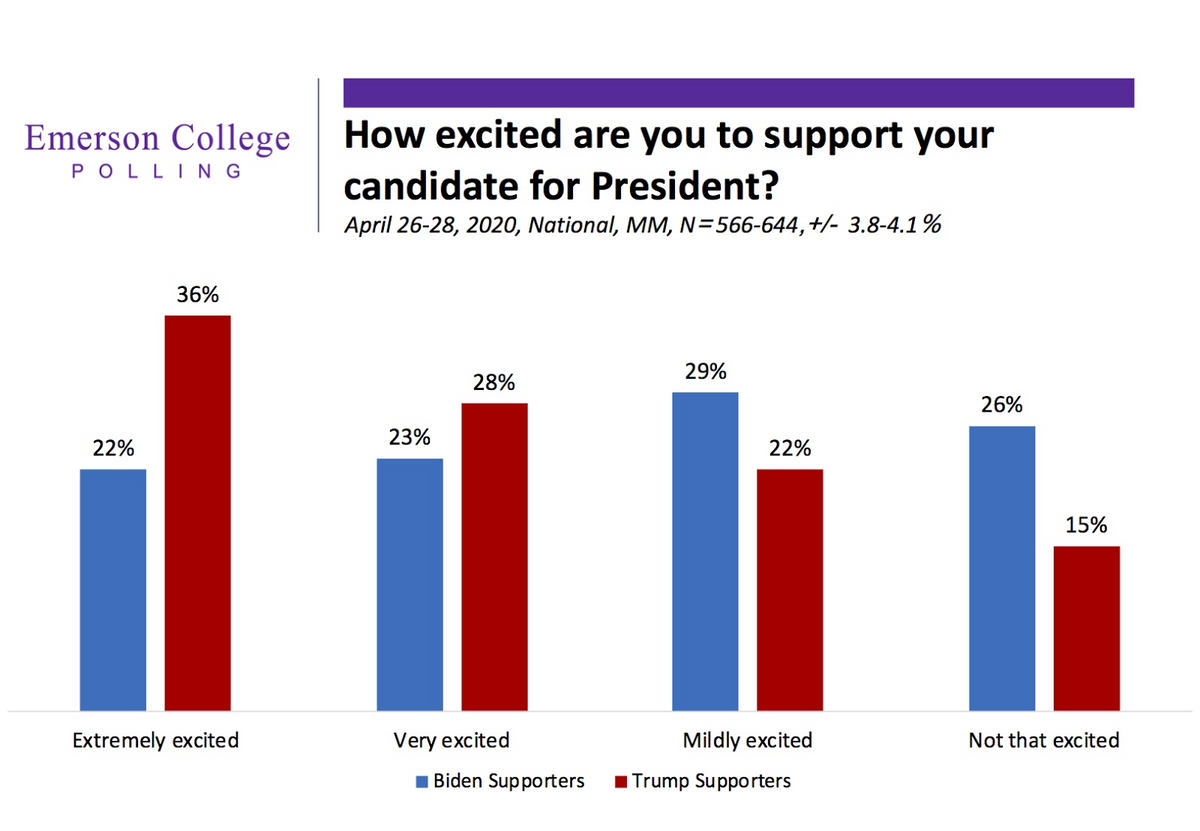
When voters were asked who they thought would win the presidency in November, regardless of who they supported, 57% said Trump and 43% said Biden.
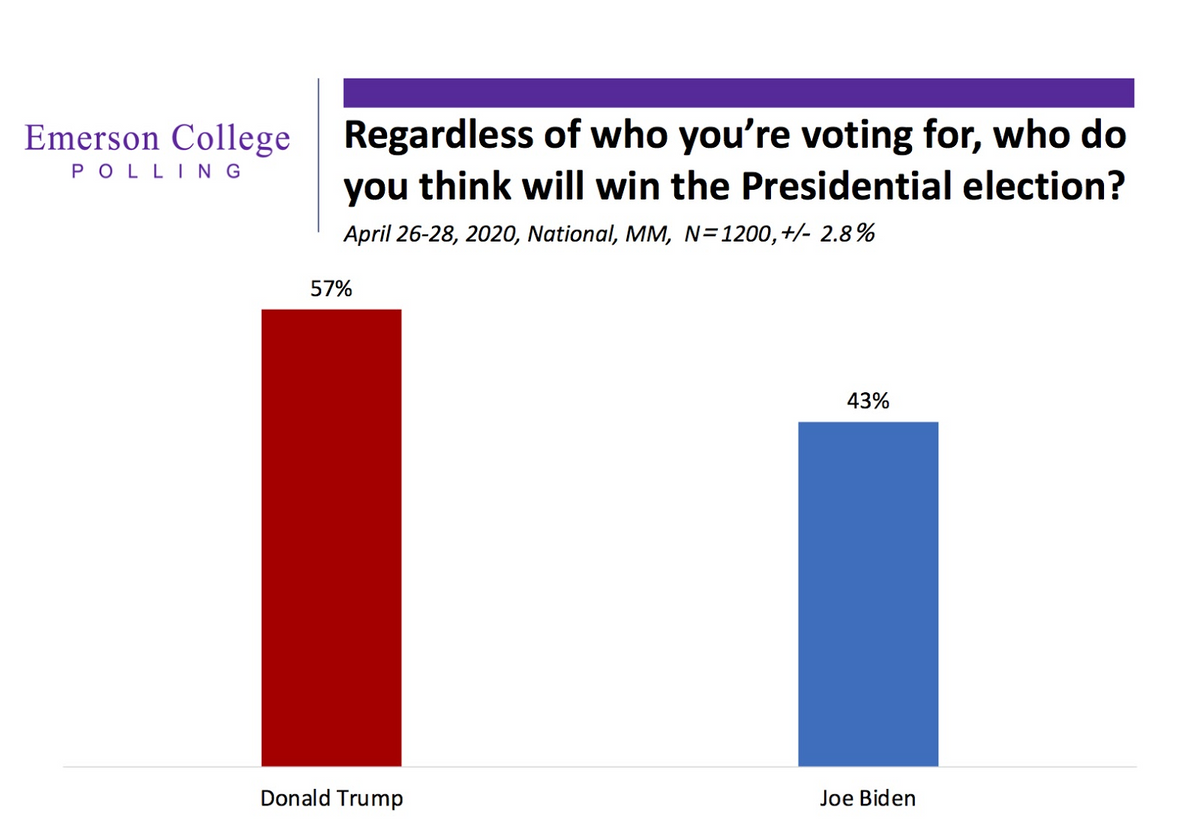
Voters were asked to rank candidates and former presidents on a favorability scale. Trump had the lowest favorability, with 38% favorable and 52% unfavorable. Biden’s favorability is also underwater, with 40% favorable and 41% unfavorable. Former President George Bush currently has a rating of 40% favorable and 37% unfavorable. In contrast, former President Barack Obama remains very popular with voters with 56% favorable and 33% unfavorable in this poll.
Spencer Kimball, Director of Emerson College Polling said, “While Trump is struggling to handle the coronavirus epidemic, it appears Biden has his own image issues with voters and may need help from former President Obama on the campaign trail to try and transfer the positive image voters have of Obama to Biden.”
Some voters are looking for a third-party candidate, with 35% saying regardless of how they plan to vote in the 2020 presidential election, they would consider voting for an independent or third party candidate at some point. Divisiveness remains from the Democratic nomination contest, as 51% of Bernie Sanders's primary voters said they would likely consider supporting a third-party candidate.
Within the coronavirus context and questions of safety with in-person voting in November, voters are not very comfortable changing their method of voting. Voters across the country generally trust their current voting process, with 55% trusting primarily in-person voting, compared with 20% who do not trust the current process. When asked about mail balloting, 47% said they would trust a national vote-by-mail process in November, while 31% lack trust in this system. When voters were asked about online balloting, only 33% said they would trust an online system, with 45% not trusting online voting in November’s election.
The most important issue for voters remains the economy at 36%. Beating Trump is the second most important issue at 21%, followed by healthcare at 16% and social issues at 10%. No other issue received more than 4%, including immigration policy. Spencer Kimball, Director of Emerson College Polling points out that, “in 2016, immigration policy was a signature message of the Trump campaign, but starting in the fall with the impeachment trial the President’s immigration message has faded significantly, and given where we are today, it will be a challenge to make it a focal point in the upcoming election.”
As we mark the 50th anniversary of the Kent State shooting, a plurality of voters 45% blame the National Guard for the violence and the loss of life, 16% blamed the students, with 39% blaming both the guard and the students for the 4 dead and nine wounded on the Ohio campus. While those under 64 were significantly more likely to blame the guard than the students, voters over 65 were split with 15% blaming the guard and 15% blaming the students. Dr. Gregory Payne, an expert on the Kent State shootings comments, “Right after the Kent State shootings, a majority of Americans approved of the Guard’s actions in a divisive era, much like today where some leaders divide rather than unite; the lesson of May 4 is that our government is only as good as the people we elect.”

